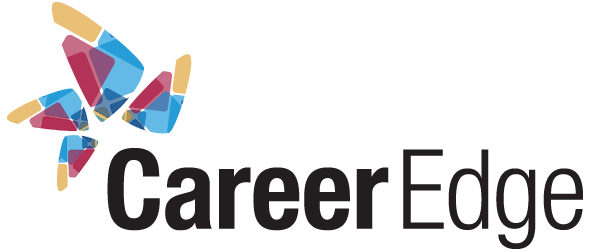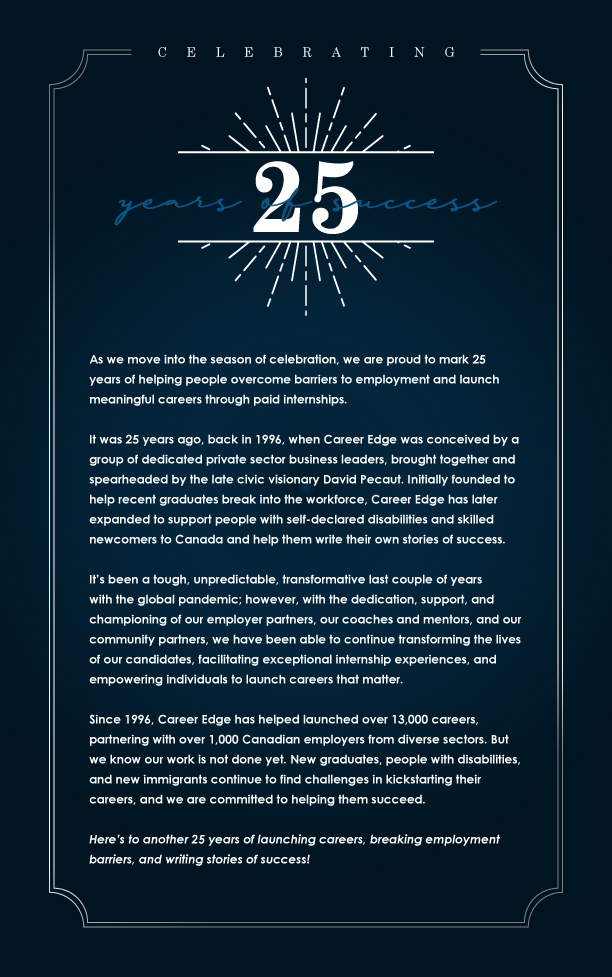
As we near the end of 2024, we have been reflecting on our journey this year and the trends we have seen working with a number of our employer partners. It’s always a great idea to reflect, learn, and apply those lessons to improve our practices in the upcoming year.
As the new year starts, employers should take stock of their hiring practices, workplace culture, and overall strategies. This year has seen significant shifts in labour demand, recruitment trends, and employee expectations. Whether you’re an SME or a large organization, these changes impact how you attract, hire, and retain top talent.
In this article, we’ll review key data points from the past year, reflect on hiring challenges, and explore opportunities for improvement as you plan for 2025. Let’s dive in and uncover actionable insights to refine your strategies moving forward.
2024 Reflections on Recruitment Trends
This year, they brought notable changes to the labor market, from declining vacancies to shifts in workforce demographics. Reflecting on these trends can help employers refine their strategies for attracting and retaining talent.
Declining Job Vacancies
2024 witnessed a steady decline in job vacancies, with the vacancy numbers dropping by 59,000 (-9.2%) in Q2 alone. This marks the eighth consecutive quarterly decline, with total vacancies now at their lowest since Q1 2020. Full-time positions saw a sharper drop (-9.5%) compared to part-time roles (-8.3%).
For employers, this trend signals tighter labor availability and a need to optimize recruitment channels.
Unemployment and Workforce Composition
Canada’s unemployment rate remains unchanged at 6.5% in Q4. Interestingly, male employment rose by (1.8%) while female employment fell (-0.8%).
For SMEs and large organizations alike, the emphasis should be on creating inclusive hiring practices to tap into diverse talent pools.
Key Takeaways for Employers
- Are you reaching the right candidates effectively?
- Is your employer brand competitive in a selective market?
- Is your hiring process efficient?
- How has your organization adapted its DEI initiatives this year?
- Do you offer opportunities for underrepresented groups—newcomers, people with disabilities, and women re-entering the workforce?
2024 Reflections on Labor Market Highlights and Challenges
Understanding labor market shifts can reveal opportunities and challenges for employers. Highlighting key industry trends, employment shifts, and areas for reflection will prepare you for 2025.
Payroll Employment Growth
Despite falling vacancies, payroll employment increased by 62,000 (+0.4%) in Q2. This stability in filled positions suggests organizations are making strides in retention and workforce utilization. The payroll employment rate, however, declined in Canada by (-0.3%) in September.
Small Business Employment Trends
With 97.9% of businesses in Canada classified as small (1-99 employees), SMEs comprise a significant share of the labour force. Therefore, it is vital to reflect on hiring challenges unique to smaller organizations.
Industries to Watch
The service-producing sector employs 79.5% of the workforce, while industries like mining, oil, and gas are driving growth. For those in thriving industries, the focus must shift from simply hiring to upskilling existing teams.
Key Takeaways for Employers
- Are you offering competitive salaries and benefits?
- Is your company culture conducive to retention?
- What steps are you taking to ensure your workforce is prepared for industry-specific advancements like automation and AI?
2024 Reflections on Workplace Culture and Retention
Retention is no longer just about compensation; it’s about building a workplace where employees want to stay. Reflecting on workplace culture can reveal how well you’re meeting employee expectations and fostering satisfaction.
Turnover Rates and Employee Satisfaction
One of the persistent challenges for employers this year has been managing turnover. As job seekers increasingly prioritize workplace culture, flexibility, and growth opportunities, traditional retention strategies may no longer suffice.
Case in Point
A Toronto-based organization restructured its workweek by implementing flexible hours and saw a 20% reduction in turnover. Simple adjustments like this can have profound impacts.
Key Takeaways for Employers
- Have you conducted employee satisfaction surveys this year?
- Are you addressing feedback effectively to retain top performers?
2024 Reflections on DEI Practices in Recruitment
Creating a diverse, equitable, and inclusive workforce isn’t just good ethics—it’s a business imperative. This year, the focus on DEI grew as candidates actively sought employers who were committed to meaningful representation and equity.
Inclusive Hiring Practices
Employers who prioritize inclusivity attract a broader pool of candidates and build stronger teams. Job postings that use inclusive language and provide opportunities for individuals with disabilities or newcomers to Canada, as well as accessibility during interviews and onboarding processes, can go a long way.
Employer Branding
Your commitment to DEI should be visible in your employer brand. Candidates research organizations thoroughly before applying—what do your website, social media, and employee testimonials say about your values?
Key Takeaways for Employers
- Are your job descriptions designed to attract diverse talent?
- Have you communicated your DEI initiatives effectively to candidates and employees?
2024 Reflections on Hiring Practices
Effective recruitment isn’t just about filling roles; it’s about building sustainable teams. Revisiting your hiring practices can uncover inefficiencies and ensure a better candidate experience.
With the ongoing labor shortage, employers need to evaluate how they approach recruitment. Key areas to reflect on include:
- Job Descriptions: Are they inclusive and reflective of actual job responsibilities?
- Screening Processes: Are you leveraging technology to streamline candidate evaluation?
- Onboarding: Is your onboarding process setting up new hires for success?
A Look Ahead: How Can You Prep For 2025
As you set goals for the new year, focus on the evolving priorities of both employers and candidates. This section outlines the steps to stay ahead of the competition and build resilient teams.
Evolving Candidate Expectations
Candidates are increasingly being picky, and for good reasons: They prioritize roles that offer purpose and growth.
Employers must keep up by offering:
- Transparent career development pathways.
- Competitive compensation packages.
- Flexible work environment.
- Work-Life balance.
Emerging Job Roles
Jobs like data scientists, IT analysts, and healthcare professionals remain in high demand. Are you sourcing talent in these fields efficiently?
Leveraging Technology
Technology will play a pivotal role in 2025, from applicant tracking systems (ATS) to AI-driven sourcing. Reflect on your tech investments this year and how they’ve impacted hiring outcomes.
Working With The Right Partners
At Career Edge, we specialize in connecting employers with skilled candidates while saving time and resources.
Closing the Gap: Why Collaboration Matters
Reflecting on the past year reveals one critical insight: employers can’t do it alone. Building partnerships with organizations like Career Edge can help bridge gaps in recruitment, ensure a diverse talent pipeline, and align hiring practices with 2025’s demands.
If your recruitment efforts fell short this year, partnering with us could make all the difference in 2025.
Ready to redefine your hiring strategies for 2025? Partner with Career Edge to access top talent and save time on recruitment. Let’s build a better workforce together. Contact us today to get started.









